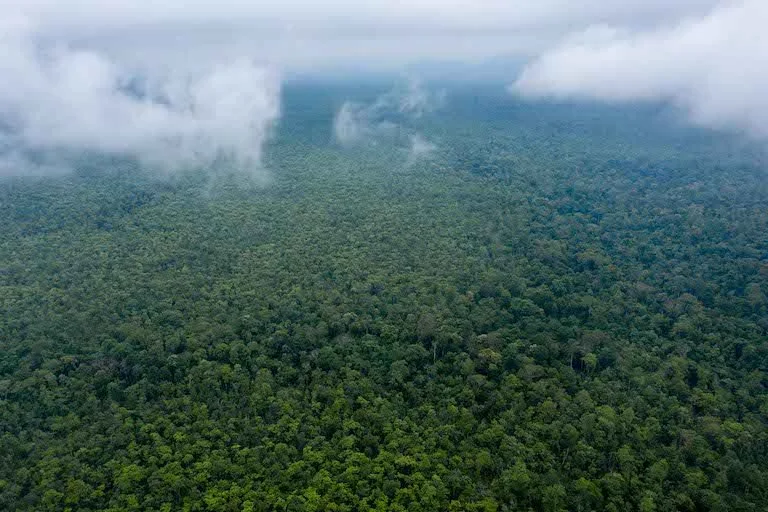Global Indigenous Peoples News Bulletin #7 (August 2025)
This bulletin devoted to Global Indigenous Peoples News, part of the Glocal Exchange project of Weave News, seeks to highlight some of the current issues from Indigenous communities in different parts of the world. The focus of the bulletin is aligned with the overall purpose of the Glocal Exchange project, which examines globalization through its impact from the perspective of local communities. It also supports the Weave News mission to “investigate and report about contemporary issues that are either underreported by establishment and other corporate media or reported in a way that excludes essential context, perspectives, and voices.” These are “issues that have a strong justice component and that reveal connections across communities, borders, struggles, and experiences.”
On July 26, 2025, “Mexico City marked 700 years since its founding by Indigenous people”. The anniversary commemorated the founding of Tenochtitlan, the capital of the Mexica, a group also known as the Aztecs, who settled in the Valley of Mexico in 1325. The Associated Press quotes Mexican President Claudia Sheinbaum, who gave a speech highlighting the ongoing struggle against racism. “Mexico was not born with the arrival of the Spanish,” said Sheinbaum. “Mexico was born much earlier with the great civilizations.” (See video in Spanish below.)
Meanwhile, AllAfrica shared on July 31 a report from Radio France Internationale on how “a new report by the International Federation for Human Rights (FIDH) and Lawyers Without Borders (ASF) accused the Northern Rangelands Trust (NRT) of displacing Indigenous communities in northern Kenya to make way for wildlife reserves tied to tourism and carbon offset projects.”
Legal developments in Southeast Asia
Intercontinental Cry magazine reports that Thailand’s House of Representatives has approved Senate revisions to the “Bill on the Protection and Promotion of the Way of Life of Ethnic Groups”. This is the country’s first legislation aimed at assuring the rights, traditions, and cultural practices of its Indigenous and ethnic communities. The Senate’s changes include a key wording shift that replaced the broader term “groups of people” with “Thais,” which highlights that Indigenous and ethnic peoples are not outsiders, but an integral part of the country’s identity.
According to the report, the new legislation is “aimed at recognizing and preserving the cultural heritage of Thailand’s diverse Indigenous and ethnic populations, which includes the Karen, Hmong, Akha, Lahu, and Moken, many of whom have faced decades of social marginalization and land insecurity. Supporters say the law could help strengthen Indigenous land stewardship, traditional knowledge systems, and language preservation.”
Mongabay published a commentary on “How Cambodia’s new environmental code undermines Indigenous peoples’ rights” by excluding Indigenous peoples’ input and failing to recognize their rights in forest and natural resource management.
Prey Lang Wildlife Sanctuary is one of the largest remaining lowland evergreen forests in mainland Southeast Asia and is home to many Indigenous communities, but it is threatened by logging, mining and land grabbing. (Image by Andy Ball for Mongabay)
“Without their voices and needs being considered, Indigenous peoples will continue to be victimized on their own land as their rights to access to non-timber forest products and traditional forests and land management have been excluded in the code,” argues author Rithy Bun. “If these rights aren’t protected, Indigenous cultures and customs are at risk of disappearing, as their daily livelihoods and cultural practices are strongly intertwined with forests and natural resources.”
Resisting patriarchal exclusion and capitalist extraction
Also writing for Mongabay, Hướng Thiện explores how women in Southeast Asia are standing up to “challenge extraction and erasure” even while dealing with discrimination, repression and violence from the state as well as exclusion and a lack of support within their own communities. “Despite obstacles” deriving from “patriarchal norms, limited education and cultural roles,” writes Thiện, “these activists are building solidarity and pushing for change through international advocacy, capacity-building programs, and expanding women’s access to education and leadership.”
Indigenous Karen people gather in support of protection of the Ban Sobmei River on Thailand-Myanmar border in 2023. (Image by International Rivers via Flickr (CC BY-NC-SA 2.0)
Resistance to extraction is also in the news in Argentina, where organizations of the Indigenous Mapuche people addressed the urgent situation stemming from conflicts with extractive projects on Indigenous land in Argentina in a public hearing before the Inter-American Commission on Human Rights. According to a report published by Earth Justice, “The human rights body of the Organization of American States heard testimony of those impacted by mining, oil, and gas projects that have been compounded by the lack of territorial recognition, ongoing evictions, and the criminalization of Indigenous communities.”



